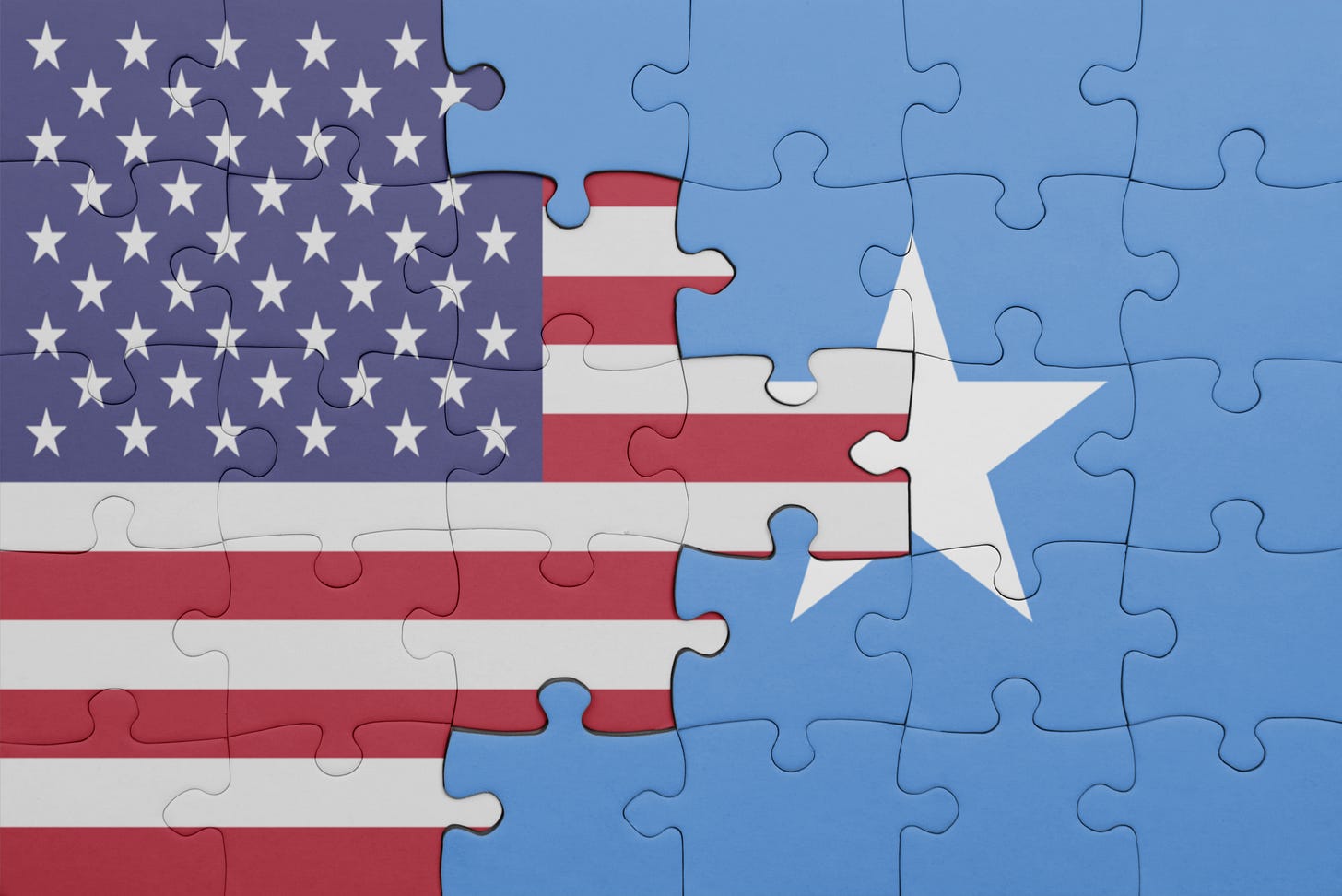Donald Trump’s return to the White House as America’s 47th president is setting the stage for major shifts in U.S. foreign policy—and Somalia and Somaliland are likely to be front and center. A second Trump term could bring a complete U.S. troop withdrawal from Somalia, cuts to financial aid, and—potentially—a historic move to recognize Somaliland as an independent nation.
Somalia: Bracing for Tough Times
Trump’s first term gives us a pretty good idea of what could be in store for Somalia. Between 2017 and 2021, his administration carried out more than 200 drone strikes in Somalia—more than the combined total of the previous 12 years. But at the same time, he pulled nearly all U.S. troops out of the country by January 2021. While President Biden later sent 450 troops back to Somalia, Trump has been vocal about his commitment to ending “forever wars.” If he follows through in his second term, we could see a full withdrawal of U.S. forces, leaving Somalia to rely on an “over-the-horizon” approach—essentially, drone strikes and air campaigns—to combat terrorism.
The challenges don’t stop there. In 2023, the U.S. gave Somalia over $1 billion in aid, making it Mogadishu’s single largest donor. But Trump’s transactional view of foreign aid—where support is tied to alignment with U.S. goals—could spell trouble for Somalia. Trump has shown he’s willing to cut aid, and Somalia’s non-aligned, multilateral foreign policy might not sit well with him. On top of that, some of that U.S. aid could be diverted to Somaliland, leaving Somalia with fewer resources to address its pressing issues.
Somaliland: A Moment of Opportunity
While Somalia faces an uphill battle, Somaliland might be on the verge of a breakthrough. Its peaceful presidential election strengthened its reputation as a stable, democratic partner in the region. Add to that its prime location along the Gulf of Aden, and Somaliland starts to look like an attractive alternative to Djibouti—a country that hosts America’s largest military base in Africa but is leaning closer to China.
Somaliland’s commercial hub, Berbera, is a standout asset. With a deep-water port and a newly renovated airport (featuring one of the longest runways in Africa), Berbera is strategically positioned to support increased U.S. engagement. Somaliland has also shown it’s willing to stand up to Beijing. When China pressured it to cut ties with Taiwan in exchange for development aid, Somaliland refused—a move that’s likely to resonate with a Trump administration eager to counter China’s influence in the region.
Key appointments in Trump’s administration could further boost Somaliland’s prospects. Figures like Peter Pham, a strong advocate for recognizing Somaliland’s independence, may take on influential roles. If the U.S. shifts away from its long-held “One Somalia” policy and formally recognizes Somaliland, it could pave the way for other countries—like Ethiopia, the UAE, and the UK—to follow suit. Such a decision would be groundbreaking, completely reshaping the region’s geopolitical landscape.
The Horn of Africa: Change on the Horizon
For Somalia, these potential changes are deeply concerning. Losing U.S. aid and military support would make it harder to fight terrorism and tackle internal challenges. And if Somaliland gains recognition, Somalia risks further diplomatic isolation. President Hassan Sheikh Mohamud would likely turn to organizations like the African Union and the United Nations to push back, but without U.S. support, his options would be limited.
Of course, Trump’s leadership style always adds an element of unpredictability. But one thing is certain: the Horn of Africa is heading into a period of major transformation. By the end of Trump’s second term, U.S. policy toward Somalia and Somaliland could look radically different, with far-reaching consequences for regional stability and American influence.
As the world watches these shifts unfold, all eyes will be on Trump’s next moves—and how they shape the future of Somalia, Somaliland, and the broader Horn of Africa.
14 North uses expertise, experience, and on-the-ground presence to solve complex problems and guide businesses and organizations through Sub-Saharan Africa’s emerging and frontier market spaces. To learn more, please contact us at info@14nstrategies.com or www.14nstrategies.com.




